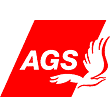Finding a Teaching Job in Libya

Like in many other countries in the world, it is possible to get an ESL teaching job in Libya. Here are a few tips to secure a job in a Libyan University.
Finding a job in Libyan Universities
The requirements to be hired as an ESL teacher in Libya are quite easy to meet, including for non native speakers and newly qualified teachers who may not have a lot of experience, that plus the fact that there are more job offers than candidates makes Libya an option worth considering. On top of that the salary package is really interesting for expats and will allow you to live comfortably and even save some money.
To apply for a job in Libya, you will need:
- To apply in person or through a person that can follow things up for you (no emails)
- A postgraduate degree from a university recognised in Libya
- A valid passport and the possibility of applying for a work visa (any stamp from Israel in your passport means you won’t get into the country)
- A few years of experience are preferable but not always necessary
Application Pack:
- A complete CV with picture
- Photocopies of all your qualifications since you left secondary education (bring the originals with you)
- A cover letter (in English and Arabic)
- Letters of recommendation from past employers (in English and Arabic)
- A photocopy of your passport (always have the original with you for any meeting)
- 2 passport size photographs
You can apply even if:
- You’re not a native speaker of English, as long as your English is very good
- You don’t have a CELTA or TEFL
- You have never taught in universities
- You don’t speak Arabic
Finding a job is actually fairly easy as the demand for ESL teachers in Libya is very high. If someone likes your CV you may not even have to go through an interview. However getting appointed for the job can be a long and sinuous road through the chaotic Libyan administration.
Paperwork and Administrative Matters
Once you have found the position that interests you and you have been accepted by the Head of Department a long process to appoint you for the job starts.
You must realise that in Libya the administration is in total chaos: there is no logical structure in place yet many people in many different offices will need to look through your application and clear it before it is completely approved. In the meantime you wait and you follow things up regularly otherwise your file gets forgotten.
Once you have been approved for the position, the university will refer you to the Ministry of Labour where your application will once more be looked into. If you are cleared to work in Libya, the university will start the process of getting you visas. At first you will get work visas which will later be exchanged for Residence Permit (Iqama) after the probation period is over (usually 3 months).
During those 3 months, you will work as usual but it will take about 4 months to sign your contract. Without a contract you cannot get your Iqama, you cannot get your salaries either. Every month until then the university issue you an advance, which amounts to about half your salary. Same for all the benefits such as accommodation allowance and settling in bonus, you will only receive those after the contract is signed.
Salaries in Libya
As an expat your salary starts from about 4000 Libyan Dinars (LYD) for a basic 1 year contract (renewable easily on consent). On top of that you receive:
- 500 LD of accommodation allowance (600 LD for families),
- return tickets from your country of origin (paid back afterwards),
- a one off payment of 1000 LD (settling down bonus)
- end of contract gratuity (1 month salary per 1 year contract)
Life is Libya is pretty cheap with many life essential heavily subsidised and therefore almost completely free (water, bread, gas, petrol) so your salary will stretch quite far. Once you have paid your rent, there are no bills here so really what you get is what you keep.
In Libya there are many opportunities to get a high paying job which doesn’t require too much work and that you can apply for even with a weak CV. Since the end of the revolution of 2011, the country is changing and slowly beginning to organise itself and when everything is in place it will be harder to get a job here. People with a sense of adventure should make a move now that possibilities are almost endless.
Find more information on Libya and working abroad in our series of expat interviews in the Middle East, Finding a job after earning your TEFL Certificate abroad and Guide to Finding a Job Abroad.
By Jameela, a French expat in Libya after having spent 10 years in England and Wales. Read more about her life and travels abroad in her expat interview and at www.diaryofaserialexpat.com.
- My Life Abroad -
A selection of expat stories

"A fun compulsive read!"
J. Matcham, Amazon
"I strongly advise people ready to live abroad to read this book!"
Patrice, Amazon

 Entrepreneurship for the Trailing Spouse
Entrepreneurship for the Trailing Spouse Guide to Becoming Location Independent
Guide to Becoming Location Independent 
 AGS Worldwide Movers
AGS Worldwide Movers Fexco payment solutions
Fexco payment solutions 1stMove Car Shipping
1stMove Car Shipping